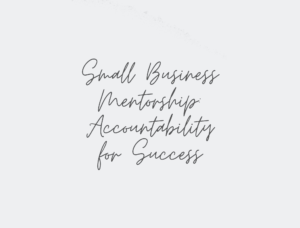Introduction
A Skills Development Facilitator’s job is becoming increasingly important in today’s constantly changing job market. These committed professionals are at the forefront of giving people the tools they need to figure out what they want to do with their careers, get the skills they need to get there, and find their way through the complicated world of professional growth. In a sea of job options, they help people find the right fit between their skills and the needs of the business. This keeps the workforce’s skills strong even as technology and the economy change.
What is a Skills Development Facilitator
Abilities Development Facilitators (SDFs) help workers learn new abilities. By conducting skills checks and needs assessments, an SDF indicates the workforce’s present ability levels and areas for improvement. Next, they create, organize, and implement training programs to fill these gaps. An SDF promotes learning and advancement, aligning the company’s strategic goals with the employee’s career aspirations.
The Significance of Skills Development Facilitator
Improving your skills is important because the job market changes quickly. To meet the needs of new businesses and technologies, today’s workers need to be able to learn, change, and gain new skills quickly. This is where the skills development mentor comes in as a plan for growth.
Enhancing Professional Competencies
The job market is based on professional abilities, and the value of different skills is always changing. A skills development trainer works to improve these skills so that people can keep their value and find work.
Bridging Skill Gaps in the Workforce
Finding and filling skill gaps is important for a business’s operational and strategic growth. They fill these holes and ensure that training programs align with the company’s goals.
Fostering Career Progression
Personal growth and moving up in your job go hand in hand. Facilitators give people the tools and help they need to plan and achieve their career growth.
Tailoring Learning Pathways
Every job path is different. Thus, training must be customized. Skills Development Facilitators create learning pathways that enhance personal and organizational outcomes by accommodating diverse goals, capabilities, and progress.
Promoting a Learning Culture
Sustainable skill growth requires a workplace learning culture. Facilitators foster inquiry and continuous improvement to make learning a value rather than a requirement, boosting the organization’s adaptability and resilience to change.
The Role of a Skills Development Facilitator
Modern skills development facilitators wear several hats, reflecting their multifaceted role in developing talent and improving enterprises.
Training Needs Analysis
As one of their first jobs, facilitators must thoroughly study what training is needed. This means figuring out what workers’ present skills are, what they will need in the future, and the best way to train them to meet those needs.
Curriculum Development
Skills development facilitators must provide informed, interesting, and powerful curriculums. These curriculums must be unique and up-to-date with industry norms.
Facilitation of Training Programs
One important part of the facilitator’s job is to run training programs. Whether it’s a classroom, a group, or an online course, the person leading it needs to be flexible, open, helpful, and able to adapt to different ways of learning.
Monitoring and Evaluation
It is just as important to evaluate the success of training programs as it is to carry them out. Facilitators can improve their methods and change them to get the best student results by constantly watching and evaluating them.
Responsibilities of a Skills Development Facilitator
Mentoring and Coaching
Developing Skills Facilitators are teachers, guides, and coaches who support learners. They provide one-on-one support, individualized counsel, and assistance with workplace issues and growth opportunities to help people advance in their professions.
Strategic Workforce Planning
Facilitators play a big role in strategic workforce planning. They work with human resources to figure out what the company will need in the future. They help make plans to ensure employees change to fit the company’s vision and goals.
Legislative Compliance
A less visible but equally important role is ensuring the organization’s skills development operations conform to laws and regulations. Skills Development Facilitators work with government agencies and industry regulators to implement legal requirements into training curriculums and practices.
Stakeholder Engagement
Facilitators work with various people, such as workers, managers, and outside training providers, to help people improve their skills. They must negotiate, convince, and speak well to meet everyone’s needs and wants.
Reporting and Administrative Oversight
Skills Development Facilitators manage finances, document training outcomes, and report on them. They document and report training activities according to corporate and national skills development frameworks.
Qualities and Skills of an Effective Skills Development Facilitator
A good Skills Development Facilitator has a good mix of traits and skills that allow them to do all the different things that come with their job. Some of these are:
Strong Interpersonal Skills
Facilitators must be good at talking to people and ensuring they understand what they’re saying interestingly. They also need to be able to listen and respond to what their students need.
Analytical and Critical Thinking
It is necessary to be able to look at complicated data, figure out what training is needed, and make strategy plans. Critical thinking helps teachers develop creative solutions to problems and change with the classroom’s needs as they arise.
Leadership and Management Abilities
Strong planning and management skills are needed to run programs and use resources well. Facilitators should also encourage others to work toward their own goals for growth.
Understanding of Pedagogy
The success of training programs depends on having a deep knowledge of educational theory and how adults learn. Facilitators should know how to use these concepts to ensure learning goes well.
Technical Proficiency
For training tools that are up-to-date and useful, it’s important to keep up with digital learning systems and new technologies.
Empathy and Cultural Intelligence
Facilitators work with a wide range of people, so they must understand and connect with people from different backgrounds.
Flexibility and Adaptability
In a fast-paced workplace, it’s helpful to adapt training methods to fit various situations and the needs of learners.
Lifelong Learning
Facilitators should make it a habit to keep improving themselves personally and professionally as a sign of their dedication to constant learning.
Knowledge of Industry and Compliance Requirements
Legal guidelines and specific information about the business make sure that facilitators can give training that is both useful and legal.
These skills help Skills Development Facilitators do their jobs well, leading their teams to do their best while helping the organizations’ long-term goals.
Skills Development Facilitation and Career Advancement
A strong link exists between helping people improve their skills and advancing their careers. Getting and improving new skills can lead to raises, more responsibility, and higher pay.
Skill Acquisition and Enhancement
Facilitators make it possible for people to learn new skills or improve their already existing ones. As your job grows, these skills will help you get ahead.
Career Advancement Opportunities
When companies help their workers improve their skills, those workers are more likely to be able to move up in their careers. Developing skills can lead to a career path, whether through bigger roles on projects or official job raises.
Building a Competent Workforce
A skilled staff is the most important thing a business has. When skilled professionals lead training programs, the people who work there become better at their jobs and can help the company reach its strategic goals.
Strategies for Effective Skills Development Facilitation
A skills development facilitator’s success depends on how well they plan and carry out strategies that meet people’s needs and the company’s goals.
Customized Training Programs
When it comes to training, one size does not fit all. The most effective training plans are made to fit the specific needs of teams or people.
Continuous Learning Culture
Facilitators must also ensure that their companies always have a learning mindset. This mindset helps people grow and keeps the company flexible when things change.
Collaboration with Industry Experts
Using the vast information of experts in the field can make training material more useful in the real world. This joint method strengthens the link between learning something new and using it in real life.
Challenges and Considerations
Becoming a Skills Development Facilitator can be beneficial, but some bad things can happen. Here are some of the problems and things to think about that people who work in this field often face:
Keeping Pace with Rapid Technological Change
Facilitators must keep their skills up to date to keep up with the fast-paced technological changes affecting how we learn and do our jobs.
Balancing Standardization with Personalization
Making training programs that meet standard requirements and working with people with different learning styles and career goals can be hard.
Engaging a Multigenerational Workforce
Understanding the subtleties and tastes of an audience that includes people of different generations is important for keeping their attention and getting information across.
Measuring Training Effectiveness
Creating clear measures for measuring the success of training programs is important for showing their worth and finding places where they can be improved.
Ensuring Compliance with Regulations
It takes hard work and up-to-date information to ensure that all training follows the complicated web of law and industry-specific rules.
Resource Allocation
A facilitator’s strategic planning skills are tested when managing funds and resources well while giving excellent training.
Cultural Sensitivity
To make sure that training tools and methods are inclusive for a culturally diverse staff, you need to be sensitive and flexible.
Resistance to Change
People who don’t want to use new tools or methods often need help to fight facilitators, so they must manage change well.
A good Skills Development Facilitator who can make a difference in an organization faces these problems head-on and comes up with careful and new ways to solve them.
The Future of Skills Development Facilitation
As we look to the future of Skills Development Facilitation, it is clear that new ideas will be very important in shaping how training and development are done. Here are some important points that will likely affect the way forward:
Embracing Virtual and Augmented Realities
VR and AR are interactive technologies that will change how people learn by making it more intense and useful.
Artificial Intelligence and Adaptive Learning
AI-powered platforms will make learning more customizable by changing the material to fit the style and pace of each student.
Data Analytics in Skills Assessment
Skill gap studies will be more accurate if data analytics are used, leading to more focused training programs.
Focus on Soft Skills Development
Developing soft skills special to humans, like emotional intelligence and creativity, will become more important as technology grows.
Integration of Microlearning Techniques
More and more people will use microlearning modules, which let workers learn in small chunks that fit into their busy plans.
Commitment to Sustainability
Sustainability principles will be gradually added to training programs, showing that caring for the earth is becoming a more important issue worldwide.
Collaborative Platforms for Peer Learning
Facilitators will use technology to create joint networks where students can share information and best practices.
Flexibility in Credentialing
There will be a move toward credentialing systems that are more open and take into account learning that happens outside of school and on the job.
Conclusion
Are they wondering, “What is a Skills Development Facilitator”? The evolving workplace competency architecture relies on these professionals. Strategic thinkers, creative instructors, and change agents shape the workforce for now and tomorrow. They create educational systems that promote business values and competence, not just teach. As traditional learning fails, the Skills Development Facilitator guides human capital development for sustained growth and excellence. Their creativity and dedication help all employees grow personally and professionally.





